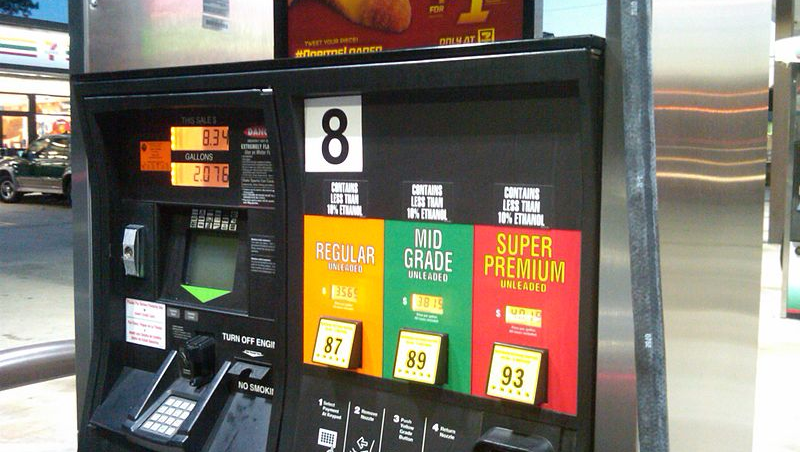Premium and Regular Gasoline – What is the Difference?
Gasoline, whether regular or premium, smells the same. You must never use this form of fuel to light your charcoal grills as it could burn you. More importantly, knowing which variant one should choose for their pickup, SUV, or car can be tricky.
When it comes to gasoline, most people tend to confuse themselves by reading too much into something. Sure, the word “premium” sounds like it would be a better option, but in reality, it is not. It would be best to eliminate uncertainty by choosing the gas your car requires. Your car’s manual will tell you whether you should choose regular or premium gasoline.
Use regular fuel if your car uses 87, or traditional octane. On the other hand, premium fuel would be ideal for vehicles with 93 or 91 octanes. You will also find these figures written on various pumps. However, there are other methods to determine octane too.
Remember, buying 93 or 91 octane premiums will not benefit cars manufactured to run with regular 87 octanes. For those who are new to this topic, an octane rating indicates the fuel’s ability to compress prior to self-igniting with the absence of a spark-plug. Premium is capable of compressing more, leading to a bigger bang once the spark plug erupts. Also, there is a higher downward pressure on the crankshaft and the piston, which ends up delivering better power.
Cars created for regular gasoline compress fuel, ensuring it does not self-ignite. It will not benefit from premium gasoline’s power potential. Therefore, you will not see an improved fuel economy in your mainstream crossover or sedan by using premium fuel.
Initially, premium gasoline used to have extra detergent additions to ensure the injectors, valves, and the engine remains clean. Things are vastly different now as the additives vary, depending on each gasoline provider. It would be best if you avoided using regular gasoline when your car requires premium. That said, you must read the automaker’s notes carefully if you want to experiment.
When it Says Premium Recommended
You have very little room to experiment with regular gasoline if your automaker recommends using premium fuel. Not doing so could damage your vehicle’s ignition and also cause air-fuel issues. It could also reduce horsepower by five to ten percent, but there will not be any major difference in the fuel economy.
When it says Premium Fuel Required
You can forget about using regular gasoline if the vehicle manufacturer explicitly requires you to enter premium fuel. However, you can enter a small octane booster can. But remember, some of them contain ethanol and carcinogens, sometimes both.
If someone tells you they noticed better mileage by running premium in a vehicle requiring regular, ask about the A/B comparison test results. Modern cars containing knock sensors could deal with octane levels falling below the advised fuel. On the other hand, vehicles that do not contain knock sensors may suffer immense damage from regular gas in vehicles requiring premium fuel.
Furthermore, engines containing turbochargers and high compression rations often need high octane fuel for fuel efficiency and optimal performance. Most cars you see on the road work well with regular gas as their manufacturers optimize them accordingly.
There is no point in paying a high amount of money for fuel you don’t need. In most cases, you will need to pay an extra fifty cents per gallon (or more) for premium gasoline. As discussed earlier, your car will not benefit from it, proving that using premium for cars optimized for regular gasoline is a waste of money.
The Importance of Detergent Additives
You’d be surprised to learn that the detergent additives used in gasoline are vastly important than its octane level. Why? Because they help optimize your engine’s performance by cleaning it. Every retailer offers different additive blends used across various grades—for instance, Techron by Chevron is available in premium and regular gas.
Some companies have high standards when it comes to additives. Audi, Volkswagen, Toyota, Honda, General Motors, and BMW were instrumental in creating well-recognized top tier gasoline levels. These standards mandate a high additive percentage compared to the minimum requirements by EPA.
According to them, lower detergent additive concentrations can leave deposit residue on the components of your engine, including intake valves and fuel injectors, which could lead to increased emissions and lower engine performance.
Use the Required Fuel Type for Optimum Performance
Engines with increased compression ratios mostly need higher octane fuel to obtain their intended emissions, fuel efficiency, and performance level. There is no point in skimping out if your vehicle requires premium gasoline. Sure, you will save a few bucks on gas, but it will come at a cost. Your car’s fuel efficiency and power will decline significantly. You’d be surprised to see the massive difference it makes in cars containing turbocharged engines.
Is it Okay to Use Regular Gas When Premium is not available?
People often find themselves in tough spots when their car manufacturer explicitly mentions premium fuel, but they can’t find it. It’s is a tough spot, but it is also an exception to the rule. Older cars may suffer from engine knocking when it doesn’t have sufficient octane fuel. However, companies optimize modern vehicles to ensure they do not undergo damage. They do so by installing sensors to prevent knocking and engine damage.
Your car will most likely run without issues on regular gas, but it would be best to steer clear from such practices regularly. When using lower-grade fuel instead of your car’s requirements, a modern car’s electronic control unit can adjust according to different octane standards. There is a high possibility your MPG and horsepower will decrease, and carbon dioxide emissions will increase. Of course, you will save some money, but your vehicle’s performance will be subpar.
What Will Happen if You Use Regular Gasoline in a Car that Recommends Premium?
With some vehicles like the Mazda MX 5 or Ford F150, manufacturers recommend using premium gas. However, they don’t require it. As discussed earlier, verbiage makes a significant difference. According to a study by AAA, some drivers notice better fuel efficiency using regular fuel in premium cars. People driving performance or luxury vehicles may notice some benefits. However, cases like these are quite rare.
On the other hand, if your vehicle’s manual recommends premium fuel, running it regularly will not do much harm. Depending on how and what you drive, people looking to go from point A to point B may not realize or care about the difference. It boils down to your personal preferences, in the end, so choose wisely.
Should You Pay Extra for Premium Gas?
There have been endless debates regarding whether paying the extra money for premium fuel is worth it. Most experts claim that many drivers do not observe any difference, and more than ninety percent of cars function perfectly on unleaded 95 octane fuel. However, some high-performance vehicles, particularly sports cars, can significantly improve with super fuel.
Premium providers claim their additives can protect and clean engines to improve performance, but you do not need to fill your tank with the expensive fuel regularly. Instead, filling it once in a while would be better. As mentioned earlier, different vehicles have varying responses to premium and regular fuels. Sure, we can try to break things down to a science, but sometimes, it does not work that way. While trial and error could help you determine what’s best for your car, it could be risky. It would be best to play it safe and use the fuel recommended by the manufacturer.
Never Settle for Low-Quality Gas
Numerous gasoline companies joined forces to sell top-quality gas using the Top Tier trademark popular in the industry. It uses superior detergent additives to keep your engine and other components clean and highly-functional. Remember, not every regular or premium gas provider has an affiliation with Top Tier. Costco is arguably the most well-recognized Top Tier provider. Check your area’s Costco gas price to determine how much you will need to pay to fuel your car.
Here is a list of some renowned Top Tier retailers responsible for more than fifty percent of the industry’s market share.
- QuikTrip
- Valero
- Sunoco
- Mobil
- Circle K
- BP
- Speedway
- Chevron
- Exxon
- Shell
A test organized by AAA showcased drastic differences between regular and Top Tier fuels. Non-Top Tier fuels were responsible for numerous engine deposit related issues after only three to four thousand stimulated driving miles. Carbon deposits like these increase emissions, decrease fuel efficiency, economy, and negatively affect a vehicle’s overall performance, particularly if it is new. Visit BudgetMotorsReno.com and Blog.BudgetMotorsReno.com








